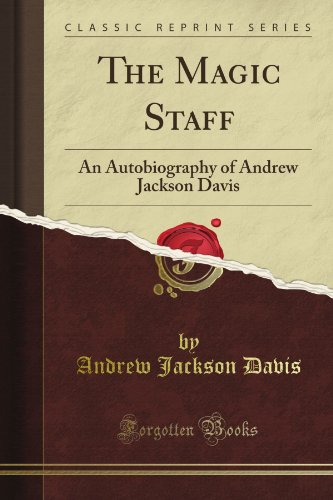Death and the Afterlife (Life on Other Worlds Series)
(First published in 1865, Death and the Afterlife contains...)
First published in 1865, Death and the Afterlife contains eight evening lectures given by Davis. He begins with the phenomenon of death and goes on to describe the conditions of life and society in the Summerland (also called the Spirit-land) and its seven planes. He also brings through a “voice”—a James Victor Wilson—who gives an account of his ten years’ experience in Summerland. In this edition footnotes have been added to clarify some of the names and places mentioned, which were familiar to readers in 1865 but are not so today. * * * Known as the Seer of Poughkeepsie and the Father of Spiritualism, Andrew Jackson Davis (1826-1910) was born in the small town of Blooming Grove, New York, the son of an alcoholic father and an illiterate, strongly religious mother. He had little education. The family moved to Poughkeepsie when Davis was twelve, and soon afterward he began experimenting with hypnotism. He discovered, in his trances, that he was a seer: divine truths and the laws of the universe were revealed to him. He could “see” the future development of astronomy, physics, chemistry, medicine, philosophy, psychology, education and government. In his trance state the human body was transparent to him, and he successfully diagnosed illnesses and prescribed treatments. He explained spiritualism and other metaphysical phenomena, describing in detail what happens to the soul at death. He also visited at will the seven-planed spirit world, which he called “the Summerland.” While in a trance he dictated a voluminous manuscript of revelations to his scribe, William Fishbough. This work, The Principles of Nature, Her Divine Revelations, and a Voice to Mankind, was published in 1847. In it he predicted the coming age of spiritualism: “It is a truth that spirits commune with one another while one is in the body and the other in the higher spheres . . . and this truth will ere long present itself in the form of a living demonstration. And the world will hail with delight the ushering in of that era when the interiors of men will be opened, and the spiritual communion will be established.” In The Great Harmonia (1850), Davis described evolution from plants to animals up to man, nine years before Charles Darwin published On the Origin of Species. He wrote and published over thirty books, many on the afterlife, with the aim of helping people advance spiritually. At the age of sixty Davis earned a degree in medicine and retired to Boston where he opened a small bookshop and prescribed herbal remedies to his patients. He died in 1910.
https://www.amazon.com/Death-Afterlife-Life-Other-Worlds/dp/0990581322?SubscriptionId=AKIAJRRWTH346WSPOAFQ&tag=prabook-20&linkCode=sp1&camp=2025&creative=165953&creativeASIN=0990581322














